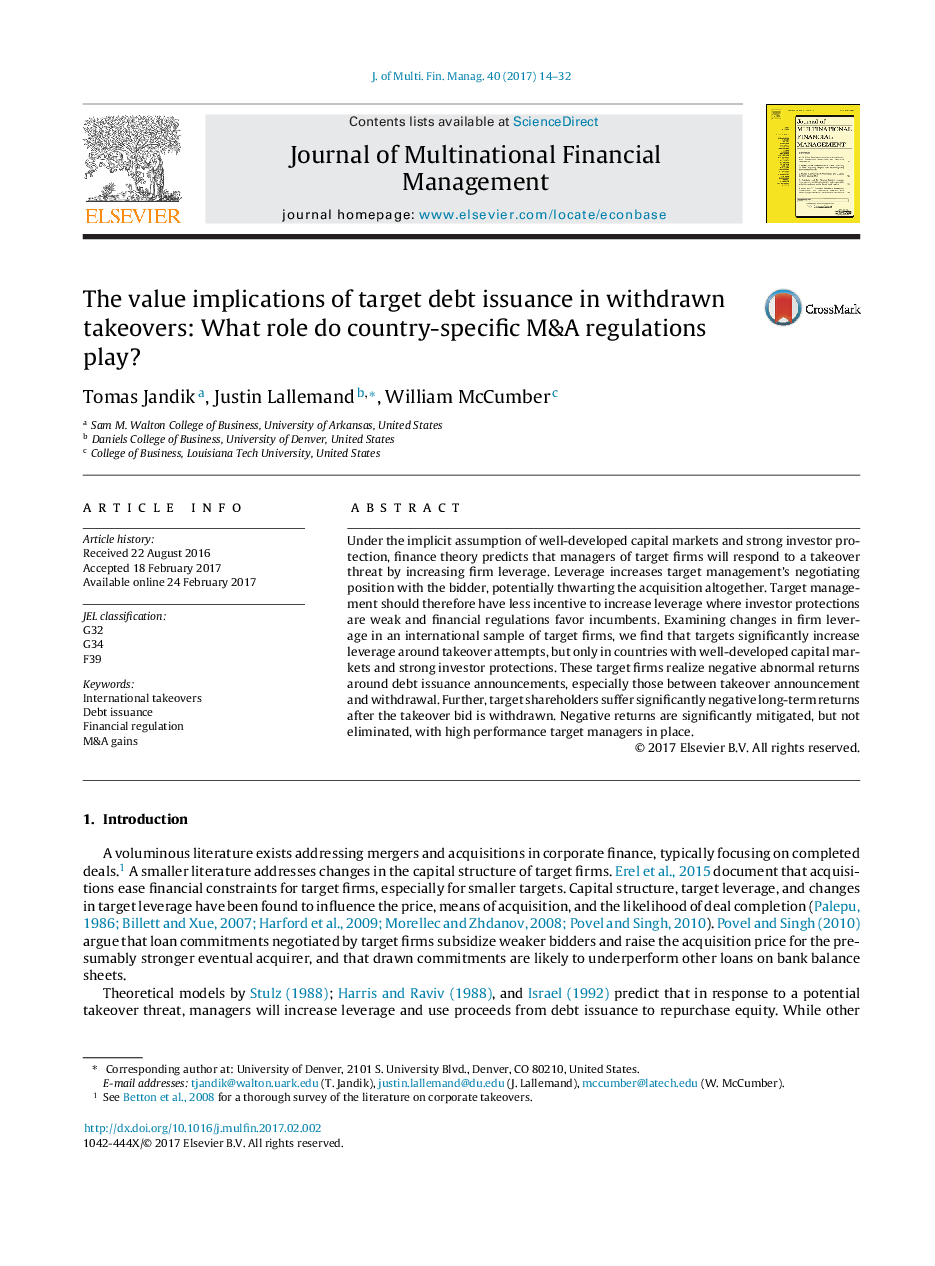| Article ID | Journal | Published Year | Pages | File Type |
|---|---|---|---|---|
| 5101582 | Journal of Multinational Financial Management | 2017 | 19 Pages |
â¢Using the Takeover Index by Nenova (2006), we differentiate countries based on takeover market efficiency.â¢In efficient takeover markets, targets of withdrawn takeover attempts are more likely to issue debt to fend off takeovers.â¢New debt is met with negative returns at issuance and with negative buyâandâhold abnormal returns postâwithdrawal.â¢For targets with highâquality managers, however, most of these negative effects are mitigated.
Under the implicit assumption of well-developed capital markets and strong investor protection, finance theory predicts that managers of target firms will respond to a takeover threat by increasing firm leverage. Leverage increases target management's negotiating position with the bidder, potentially thwarting the acquisition altogether. Target management should therefore have less incentive to increase leverage where investor protections are weak and financial regulations favor incumbents. Examining changes in firm leverage in an international sample of target firms, we find that targets significantly increase leverage around takeover attempts, but only in countries with well-developed capital markets and strong investor protections. These target firms realize negative abnormal returns around debt issuance announcements, especially those between takeover announcement and withdrawal. Further, target shareholders suffer significantly negative long-term returns after the takeover bid is withdrawn. Negative returns are significantly mitigated, but not eliminated, with high performance target managers in place.
